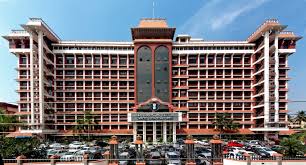DISPOSAL OF VEHICLES SEIZED IN NDPS CASES MUST BE THROUGH NDPS FRAMEWORK, NOT CRPC

I. BRIEF FACTS OF THE CASE
In the case of R. Manimaran v. State of Tamil Nadu [Crl.A. (MD) No.192 of 2024] (Decided on 09.07.2025) (Judgement by- B. Pugalendhi, J.), filed before the Hon’ble High Court of Madras, the Appellant sought release of a lorry seized during a 2021 NDPS investigation. The vehicle had been retained as a material object throughout trial proceedings. Although the Accused was acquitted in January 2023, the Trial Court did not issue a specific confiscation order. The Appellant then applied under Section 452(2) CrPC for release of the vehicle, but this was dismissed on grounds that the State intended to file an Appeal. The High Court was called upon to determine the correct statutory procedure for disposal of such seized conveyances.
II. KEY LEGAL ISSUES
- Whether the disposal of a vehicle seized in connection with NDPS offences can be governed by general CrPC provisions (Sections 451/452).
- Whether post-trial release of a seized conveyance, especially when there is no confiscation order, falls under the NDPS framework.
- Whether the disposal of vehicles seized under the NDPS Act should mandatorily be routed through the Drug Disposal Committee as prescribed under Section 52A and the 2022 Disposal Rules.
III. REASONING OF THE HIGH COURT
- NDPS Act as a Special Statute
The Court emphasized that the NDPS Act is a special law and must override general provisions of the CrPC. Section 52A of the NDPS Act, introduced by way of a 1989 Amendment, along with the 2022 NDPS (Seizure, Storage, Sampling and Disposal) Rules, provides a complete mechanism for disposal of seized narcotic drugs and associated conveyances.
- Conveyance vs Property
Vehicles used in transporting narcotics qualify as “conveyances” under Section 2(viii) of the NDPS Act, distinct from general “property”. This classification dictates that disposal must proceed through certification, inventory, and referral to the Drug Disposal Committee (DDC), and not through summary judicial release under CrPC.
- Importance of Following Procedure
The Court observed a consistent pattern of delays and lapses in promptly invoking the disposal mechanism provided under Section 52A of the NDPS Act. Despite a full trial and acquittal, neither the Investigating Officer nor the Claimant had pursued disposal via the statutory mechanism. The belated claim raised concerns of bona fides, especially as the appellant never came forward during investigation or trial.
IV. JUDICIAL AND LEGISLATIVE ANALYSIS
- Precedents and Statutory Framework
The Court referenced:
Union of India v. Mohanlal (2016): The Supreme Court mandated rigorous adherence to Section 52A of the NDPS Act and emphasized that Drug Disposal Committees are duty-bound to promptly process and dispose of seized materials.
Divisional Forest Officer v. G.V. Sudhakar Rao (1985): The Court clarified that where a special statute provides for confiscation, its provisions take precedence over the general procedures outlined in the Criminal Procedure Code.
Nahoorkani v. State (2023): Reiterated that return of seized vehicles under CrPC is impermissible if seized under NDPS provisions.
- Role of Drug Disposal Committees
The 2022 NDPS Rules assign quasi-judicial authority to DDCs. Rule 16 lists eligible items for disposal, Rule 20 obliges committees to examine each case, and Rule 23 provides the manner of disposal. DDCs must give claimants a hearing before deciding on disposal.
- Fundamental vs. Constitutional Right to Property
Article 300-A guarantees a constitutional, not fundamental, right to property. In drug-related cases, such rights are subject to special statutory frameworks like the NDPS Act.
V. CONCLUSION AND IMPLICATIONS
The Madras High Court ruled that the disposal of vehicles seized in NDPS cases must strictly follow the procedure laid down in Section 52A of the NDPS Act and the 2022 Rules, and cannot be carried out under the general provisions of Sections 451 or 452 CrPC. Trial courts and Investigating Officers must rigorously follow statutory protocols for inventorying, certification, and disposal via the Drug Disposal Committee.
This Judgment highlights a vital procedural directive: that special statutory frameworks for handling and disposing of seized property in NDPS cases cannot be bypassed in favor of general criminal procedure. It calls for administrative reforms and judicial vigilance to prevent evidentiary decay, misuse of seized assets, and erosion of statutory safeguards.
Lastly, this ruling underscore the evolving jurisprudence on the importance of following the “special overrides general” principle in criminal law. It also reflects broader systemic challenges in NDPS enforcement, including poor asset management, lack of inter-agency coordination, and the gap between legislative intent and field-level practice.
SARTHAK KALRA
Senior Legal Associate
The Indian Lawyer & Allied Services
Please log onto our YouTube channel, The Indian Lawyer Legal Tips, to learn about various aspects of the law. Our latest Video, titled Uniform Civil Code Explained | Pros, Cons & Constitutional Perspective | Advocate Sushila Ram Varma| can be viewed at the link below:
https://www.youtube.com/watch?v=NKJgw5k4kQU





































Leave a Reply